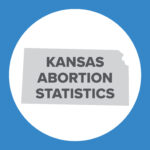The Bold Finish of a Pro-Life Administration
This is Issue 18 of the American Reports Series.
This paper will explore some of the major pro-life gains made in the past four years, including those made in the final days of the Trump administration, and preview what may come in the days and weeks ahead.
With the inauguration of Joseph R. Biden as the 46th president of the United States, so begins an admin- istration expected to seek to repeal the many pro-life gains of the previous administration. Even in President Trump’s last week in office, his administration continued to promote and expand policies seeking to advance a culture of life. From declaring January 22nd, the anniversary of Roe v. Wade, as National Sanctity of Human Life Day to recent rulemaking by the Department of Health and Human Services (HHS), President Trump’s administration championed a robust pro-life agenda.
Mexico City Policy
The previous administration’s first pro-life action was to re-implement the Mexico City Policy on January 23, 2017—one day after the 44th anniversary of Roe v. Wade. This policy was begun under the Reagan Administration and bars taxpayer funding for organizations providing abortion or involuntary sterilization overseas. On August 8, 1984, then-Ambassador James Buckley, head of the U.S. delegation to the International Conference on Population in Mexico City, reminded the delegates that “[t]he UN Declaration of the Rights of the Child (1959) recognizes the right of children to protection before birth as well as after. In keeping with this affirmation, the United States does not consider abortion an acceptable element of family planning programs.” The Mexico City Policy went on to 1) require segregated accounts for any bilateral family planning assistance so that U.S. funds could not be used for abortion; deny all funds to nongovernmental organizations (NGOs) “which perform or promote abortion as a method of family planning” overseas; and limit funding to UN Fund for Population Activities (UNFPA) programs involved in abortion or coercive family planning programs.
In May 2017, the Trump administration went further with the Mexico City Policy by announcing “Protecting Life in Global Health Assistance” (PLGHA), which was a policy that outlined how the Department of State would implement the Mexico City Policy. PLGHA “outlined the manner in which U.S. government departments and agencies would apply the provisions of the Mexico City Policy to all foreign non-governmen- tal organizations (NGOs) that receive U.S. funding for global health assistance.” PLGHA defined “global health assistance” as “U.S. funding for international health programs, such as those for HIV/AIDS, maternal and child health, malaria, global health security, and voluntary family planning and reproductive health.” Therefore, groups applying for federal funds for such international health programs could not receive money if they also provided abortion, whereas the prior policy from 1984 had only applied to family planning assistance.
Title X of the Public Health Service Act (PHSA)
In 2018, the administration promulgated rulemaking affecting Title X family planning programs, which impact low-income and uninsured Americans, specifically women and girls. The administration stipulated that Title X grantees receiving federal funding for their programs could no longer provide or refer for abortions. This excluded, among others, Planned Parenthood, the nation’s largest provider of abortions, from receiv- ing federal funding for its contraception, STD screening, and pregnancy tests, unless they stopped providing abortions and abortion referrals. Prior to withdrawing from Title X in response to this rulemaking (the “Protect Life Rule”), Planned Parenthood claims to have provided up to 41% of Title X services.
Instead of pushing the big abortion agenda of Planned Parenthood, the Title X rule changes instead separated abortion from health care access for women in need. Rather than millions of dollars flowing to Planned Parenthood and similar organizations, federal dollars instead went to organizations providing family planning and health care services.
Appointing Judicial Nominees
With the Trump administration, we saw a large number of judicial nominees and confirmations. Under a Republican majority, the Senate confirmed 234 Article III judges, including three Supreme Court justices. Trump appointees now make up 30% of the Supreme Court and 30% of the U.S. Courts of Appeal, the second highest courts in the United States.
For the pro-life movement, this means that cases impacting Roe v. Wade could be heard by a Trump-appointed judge at the district court level and up through the Courts of Appeals before making their way to the Supreme Court. In recent decisions, such as June Medical Services v. Russo, the Supreme Court was split 5-4, with the Court ruling unconstitutional a Louisiana state law which mandated that abortionists have hospital admitting privileges. However, that was a court with the late Justice Ruth Bader Ginsburg. With three new Trump appointees to the court—Justices Barrett, Kavanaugh, and Gorsuch—plus Justices Alito and Thomas, the Supreme Court could rule a different way on cases impacting life. Already we are potentially seeing a shift. Six Supreme Court justices recently voted to stay an injunction against a Food and Drug Administration (FDA) rule that prohibits abortion providers from mailing the abortion pill mifepristone, sold under the brand name Mifeprex or as a generic. A lower court had previously ruled against the FDA and allowed mifepristone to be dispensed through mail order. While this case is not over, the Supreme Court has reinstated protections for women and girls at this time.
Recent Pro-Life Actions
As President Trump’s time in Washington came to a close, his administration took actions protecting individuals with disabilities. Back in September 2020, President Trump issued an executive order which began, “Every infant born alive, no matter the circumstances of his or her birth, has the same dignity and the same rights as every other individual and is entitled to the same protections under Federal Law.” Examples of such federal laws include the Emergency Medical Treat- ment and Labor Act (EMTALA) which guarantees treatment or appropriate transfer in hospitals hav- ing an emergency room, the Rehabilitation Act which “prohibits discrimination against individuals with disabilities by programs and activities receiving Federal funding,” and the Born-Alive Infants Protection Act which provides that no matter the circumstance under which an infant is born— including by failed abortion—that infant is an individual under Federal law.
Following this executive order, the Department of Health and Human Services (HHS) issued a proposed rule in the final week of the administration to protect infants born alive with disabilities at Centers for Medicare and Medicaid Services-supported hospitals. Concerning the proposed rule, former HHS Office of Civil Rights (OCR) Director Roger Severino said, “When parents seek emergency treatment for their newborns, hospitals should never deny care on the belief that lives of infants with disabilities are not worthy of saving. Americans across the political spectrum agree that people should be protected from disability discrimination in matters of life and death. This rule will promote the fundamental American principle that all lives are created with equal worth and dignity, no matter the circumstances of one’s birth.”
This rule is significant in that it would protect vulnerable infants, whether born early or born with disabilities, so that they could receive the emergency care they need and that often comes at the request of their parents. In fact, one of the reasons behind creation of this proposed rule was that OCR had “reason to believe some hospitals fail to perform the required medical screening and, thus, do not provide potentially life-saving or life-sustaining medical treatment to infants with disabilities or infants born before 24 weeks gestation, even when parents plead for such treatment.”
In another final pro-life action, OCR also issued a Request for Information (RFI) concerning disability discrimination with respect to organ transplantation, life-saving or life-sustaining care as it relates to medical futility and quality of life judgments, assisted suicide, and crisis standards of care. The RFI expressly seeks comments on individuals being discriminated against in any of these circumstances. This action by OCR is important in that the government seeks to protect people from being discriminated against due to their disability at critical times when their health is at risk.
What to Expect Next
Just a short while in office, the new Biden administration made sweeping changes to reverse the pro-life gains of the previous four years. On January 28, the day before the annual March for Life, President Biden signed an executive order revoking the Mexico City Policy. In his “Memorandum on Protecting Women’s Health at Home and Abroad” President Biden unequivocally declared, “it is the policy of my Administration to support women’s and girls’ sexual and reproductive health and rights [translation: abortion procedures] in the United States, as well as globally.” With the stroke of a pen, Biden opened the floodgates to U.S. taxpayer funds once again flowing to foreign nonprofits that promote and refer for abortion.
In addition, the newly-issued memorandum also instructs HHS to “review the Title X Rule and any other regulations governing the Title X program that impose undue restrictions on the use of Federal funds or women’s access to complete medical information and shall consider, as soon as practicable, whether to suspend, revise, or rescind, or publish for notice and comment proposed rules suspending, revising, or rescinding, those regulations, consistent with applicable law, including the Administrative Procedure Act.” Fortunately, this will require a new rulemaking from HHS, which will delay implementation of the change and may arrive too late to restore Title X funds to Planned Parenthood before the new fiscal year beginning September 30, 2021. However, the Biden Administration will ultimately decide to suspend or rescind President Trump’s Title X regulations during his administration, enabling abortion providers to subsidize their abortion practices with Title X funding.
Another possible policy change could be the elimination of the Hyde Amendment, which CLI’s Dr. Michael New estimates has saved 2.4 million Americans from abortion since its inception in 1976. The Hyde Amendment is a rider added to the annual HHS appropriations bill that bans federal funding for most abortions, with exceptions made for rape, incest, and the life of the mother. Although previously supportive of the Hyde Amendment, President Biden changed his stance in 2019 during the Democratic primary campaign, saying he struggled “with the problems Hyde now presents” as it impacts women’s health care, particularly as he looked to provide universal health coverage. It is probable that under a Biden administration, plus the Democratic Congress, we may see a fierce battle over Hyde this year.
Finally, it is likely that recent pro-life steps taken by the previous administration will be reversed or simply not enacted. For example, new political appointees at HHS will presumably not promulgate a final rule that would protect infants born alive with disabilities. However, in looking at what may come in the next four years, one bright spot for pro-life advocates is that the federal judiciary has been populated with more textualist judges. Due to their judicial philosophy—with many likely subscribing to an originalist or textualist viewpoint—these recent appointees to the federal bench may strike down laws or regulations imposing extreme or national abortion policy, should they not see the constitutionality of such actions.
All in all, these issues of long-term national standing will be the subject of many developments in 2021 and beyond, with no sign that the Trump Administration’s impact will, or can be, summarily erased.
Katey Price is an attorney and an associate scholar with the Charlotte Lozier Institute.


























